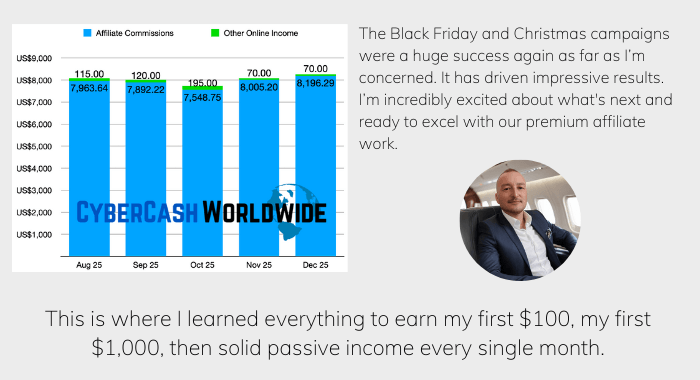Alright, so you've heard about this whole web hosting reselling gig. You buy a big chunk of hosting space and then split it up to rent out to others. There's no need for technical knowledge because many hosting companies offer a reseller option. You get to decide the pricing, the features, and how you want to market your services.
You may be thinking, "How hard can it be? Buy some space, sell it off, and voila, extra cash!" Well, the good news is, you're thinking positively. But the bad news is, you'll still find customers, right?

How Does a Web Hosting Reselling Work?
Step 1: Choose Your Reseller Hosting Plan
Before you can sell anything, you need something to sell. This is where reseller hosting plans come in. Different hosting companies offer packages specifically designed for resellers. These usually come with:
- Bulk Hosting Space: This is the virtual real estate you'll divide and rent out.
- Management Tools: Trust me, keeping track of your clients, their sites, and all those tiny details gets way easier with tools like WHM (Web Host Manager).
Step 2: White Labeling – Making It Yours
One cool thing about reselling is that your clients don't need to know who's actually hosting their sites. White labeling means that you'll create a brand that sells the hosting as your own. This means:
- Customizing the control panel to fit your brand.
- Setting up your own support system.
- Basically, ensuring your clients see your brand and not the original hosting company.
Step 3: Set the Stage with Pricing and Packages
Now, how much space will you offer in each package? And at what price? Here's where you carve up that virtual real estate:
- Decide on the number of domains, email addresses, and storage each package gets.
- Price things competitively but also in a way that ensures you turn a profit.
Step 4: Tech Talk – The Backend
You don't have to be a tech wizard, but understanding a few basics can help:
- cPanel Accounts: This is the dashboard your clients will use to manage their sites. Each client gets their own.
- Nameservers: These direct a domain name to the hosting provider. You'll usually get your own branded nameservers with reseller hosting.
Step 5: Attract Those Clients
Alright, you're set up and ready to roll. Now you just need some clients. Here's where the fun begins:
- Local Outreach: Local businesses or startups could be on the hunt for hosting. Why not be their go-to?
- Online Promotion: Share about your services on social media or through content like blogs or videos.
Step 6: Keep the Lights On – Support and Maintenance

Remember, you're the face of the hosting for your clients. If they have questions or hit a snag, they'll come to you. Here's how you can shine:
- Use the knowledge base and support offered by your hosting provider. They're your backup!
- Regularly check in on your clients. A little "Hey, how's your site doing?" can go a long way.
Step 7: Think Growth
As your reselling business chugs along, always think about the next step:
- Can you offer additional services, like website design or SEO?
- Is there a new niche market you haven't tapped into yet?
You can say that selling a web hosting plan is about building relationships and being there for your clients. Sure, there may be a lot going on behind the curtain, so are you really intereted in building a business that's truly yours?
Choosing the Right Provider
Reputation Matters
First things first: What are people saying? A good track record is like gold. If other people have had a great experience with a provider, there's a good chance you will too. So, take some time to:
- Read online reviews: Get a sense of common praises or complaints.
- Ask around: Sometimes your pals or fellow business owners have tried-and-true recommendations.

The Importance of Support
Let's be honest. Even the tech-savviest among us can run into problems or have questions. And when that happens, you don't want to be left hanging. A provider that offers top-notch customer support can save you a lot of headaches. Here's what you might look for:
- 24/7 availability: Because problems don't always wait for business hours.
- Multiple channels: Whether it's through phone, chat, or email, having options is always a plus.
- Knowledgeable staff: It's not just about being there; it's about providing the right help.
The Tool Chest: Features and Benefits
Every provider is going to toss around a lot of techy terms and bonuses to lure you in. It can get confusing, but focus on what matters most for your needs. Ask yourself:
- What management tools are available? Some providers offer user-friendly dashboards that can make your life easier.
- Are there any security features? Protecting your clients' sites from bad actors is always a good move.
- What about scalability? As your business grows, can they handle more demand?
Pricing: More than Just Numbers

Alright, let's dive a bit deeper into the web hosting pricing. When you see a price tag, it's tempting to think that's the end of the story. But, as with many things, there's often more than meets the eye.
What's Really Included in the Price?
Storage and Bandwidth
Think of these as the size of your apartment and the width of your doorway. Some providers might offer unlimited storage but limit your bandwidth, which could affect site performance.
- Potential Cost: Hosting plans with generous bandwidth typically range from $5 to $15 more per month.
Domain Names
Some providers offer a free domain name for the first year. But after that year? There's often a renewal fee.
- Potential Cost: Renewal might set you back anywhere from $10 to $50 a year.
SSL Certificates
These little gems keep your site secure. Some providers offer them for free; others might charge.
- Potential Cost: If it's not included, you could be looking at $10 to $70 annually, depending on the certificate type.
Hidden Fees
- Setup Fees: You've picked a plan, you're all set to go, and then – bam – a one-time setup fee. Not all providers charge this, but some do. This can range from $5 to $50.
- Migration Fees: Want to move your site from another host? Some providers will do this for free; others will hand you a bill. It can be free or go up to $150, depending on complexity.
Deals for Commitment Phobes
- Discounts for Long-Term Plans: It's common for providers to offer lower monthly rates if you commit for a longer period. By opting for a 3-year plan instead of month-to-month, you could save between $3 to $10 a month.
The Flexibility Factor
- Changing Plans: Your needs might change. Maybe you start with a basic plan but want to shift to something beefier. Some providers are super flexible; others might charge a fee. Switching might be free, or you could end up paying a difference in plan costs plus an additional fee, which could be $20 or more.
Location
The physical location of your provider's servers can affect website speed. And speed matters - for you, for search engines, and for your clients. Check out:
- Data centers closer to your main audience can give them a speed boost.
- If they offer Content Delivery Network (CDN) services, which can help speed up site loading times worldwide.
Recommendations
Now, to the golden question: Which providers should you consider? A few names pop up time and again due to their solid services:
- Bluehost: Known for great customer support and excellent uptime.
- HostGator: Offers a variety of plans to fit different needs and budgets.
- SiteGround: They shine in the performance department and have a robust security setup.
- A2 Hosting: They boast lightning-fast speeds and dependable service.
- GreenGeeks: It's an environmentally-friendly web hosting service - this is the way to go!
Ultimately, the best provider for you hinges on your specific needs and what you prioritize the most – be it price, performance, or support. So, gather your facts, weigh the pros and cons, and you'll find a provider that feels just right.
Setting Your Prices
Deciding how much to charge can be tricky. Here's a simple approach:
- Research the Market: See what others are charging. Don't just copy their prices, but use this info as a starting point.
- Costs: Factor in how much you're paying for the hosting and any additional expenses.
- Value: Think about any extra services or features you're offering. If you're providing stellar support or other perks, you might be able to charge a bit more.
Marketing Your Services
Once you've got everything set up, you'll need customers. Here's how to get the word out:
- Start Local: Talk to local businesses or friends who might need hosting.
- Use Social Media: Platforms like Facebook and Twitter can be great for spreading the word.
- Website: Set up your own website to showcase your services. After all, you're in the web hosting business!
Keeping Clients Happy
Happy clients are loyal clients. Here's how to keep them coming back:
- Good Support: Always be there to help with any issues or questions.
- Regular Updates: Technology changes fast. Make sure your hosting services stay up to date.
- Feedback: Ask your clients for feedback and act on it. It shows you care and can help you improve.
The Other Side of the Coin: Loss Projections

So you've got your shiny web hosting plan, and you're all set to woo customers. But let’s take a moment and consider a what-if: What if the customers don’t come knocking right away?
Digging into the Numbers
Jumping into web hosting reselling does come with its costs. Let’s break down potential expenses to understand what's at stake:
- Monthly Hosting Fees: This is your most straightforward cost. Say you opt for a reseller package that costs you $30 a month. If no customers sign up, that's $360 in a year.
- Domain Renewals: Maybe you got a free domain when you started. But renewal could set you back anywhere from $10 to $20 a year.
- Additional Services: SSL certificates, backup services, and security features might cost extra. These can range from $10 to $200 annually, depending on what you've chosen.
- Marketing Efforts: If you've put money into promoting your services, such as through ads or sponsored posts, these costs add up. A modest marketing budget might be around $500 a year.
So, ballpark estimate, without customers, you could be looking at a loss of around $800 to $1,000 a year, or possibly more, based on the decisions you make and the add-ons you choose.
Ways to Mitigate Potential Losses
Nobody likes seeing their hard-earned money fly away. Here are a few strategies to cushion the impact:
- Start Small: Choose a basic reseller package to start with. As you gain customers and confidence, upgrade as needed.
- Use Free Marketing Avenues: Social media, word of mouth, or even blogging can be cost-effective ways to get the word out.
- Diversify Services: Offer website design, maintenance, or content services alongside hosting. This may attract a wider customer base.
- Partner Up: Collaborate with others in the web industry. A graphic designer, for example, might refer clients to you for hosting.
Now, while these projections may seem a bit daunting, they're just part of the entrepreneurial adventure. Ups and downs come with the territory. What truly matters is learning, adapting, and staying resilient. After all, every cloud (or server, in this case) has a silver lining. Here's to hoping yours is filled with tons of satisfied customers soon!
Wrapping Up
Web hosting reselling can be a fun way to earn some extra money. With the right provider, a good pricing strategy, and a bit of marketing, you'll be on your way to success. And always prioritize your clients' happiness – they're the heart of your business. So, ready to rent out your little pieces of the internet? Go for it!

Author Bio: Hyacinth Huang
As a passionate freelance writer, I craft stories that resonate deeply with readers. But beyond the keyboard, my lifelong love affair is with food. From dawn to dusk, I'm enticed by the flavors of the world, often saying that my heart beats in sync with the rhythm of my chew. Yet, as much as I relish every bite, a growing concern about my weight casts a shadow over my culinary adventures. My journey is a dance between my two loves, constantly seeking balance in a world filled with tempting treats.


